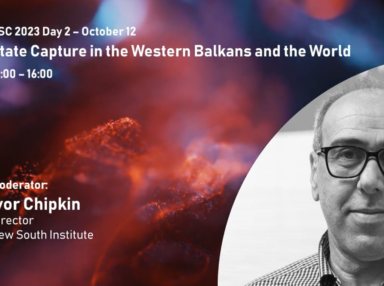Pioneering Approaches to Measure State Capture: IACA Features Ivor Chipkin and Jelena Vidojević in Policy Brief
The New South Institute (NSI) is pleased to highlight a significant policy brief titled “Measuring State Capture,” authored by Elizabeth David-Barrett, Daniel Kaufmann, and Juan Camilo Ceballos, and published by the International Anti-Corruption Academy (IACA). This brief, numbered 8 and released at the end of October 2022, is an outcome of the third GPMC Expert Think-in, which took place in Laxenburg, Austria, from May 3-5.
At this esteemed event, Ivor Chipkin, NSI’s Executive Director, represented the institute amidst some of the world’s foremost scholars and analysts specializing in state capture and corruption. The gathering enabled participants to delve into sophisticated methodologies for effectively assessing state capture, with the work of Chipkin and NSI’s co-founder and Research Fellow, Jelena Vidojević, standing out and garnering acknowledgment in the IACA’s publication.
The policy brief commends the collaborative efforts of Chipkin and Vidojević in developing methodologies to measure state capture at the organizational level, with an emphasis on occurrences in South Africa. The co-authors meticulously examined the case of Eskom, the nation’s state-owned power company, by analyzing a diverse set of data, including human resources, financial, and technical records from a specified timeframe. Their research suggests that state capture is prominently visible within bureaucratic mechanisms, especially during the execution and interpretation of laws and policies.
Chipkin and Vidojević’s findings reveal that anomalies within bureaucratic structures can serve as indicators of state capture. These anomalies, discernible through inconsistencies in time-series data and data quality fluctuations, offer opportunities for in-depth modeling and analysis. The duo’s research unveils potential indicators of organizational instability that may act as proxies for bureaucratic capture.
Moreover, the methodologies introduced by Chipkin and Vidojević incorporate innovative applications of Artificial Intelligence (AI) and data modeling, enhancing the understanding of the intricacies of state capture.
We invite readers to delve into the insights presented in Policy Brief No. 8, further exploring the valuable contributions made by Ivor Chipkin and Jelena Vidojević in this pivotal field.



